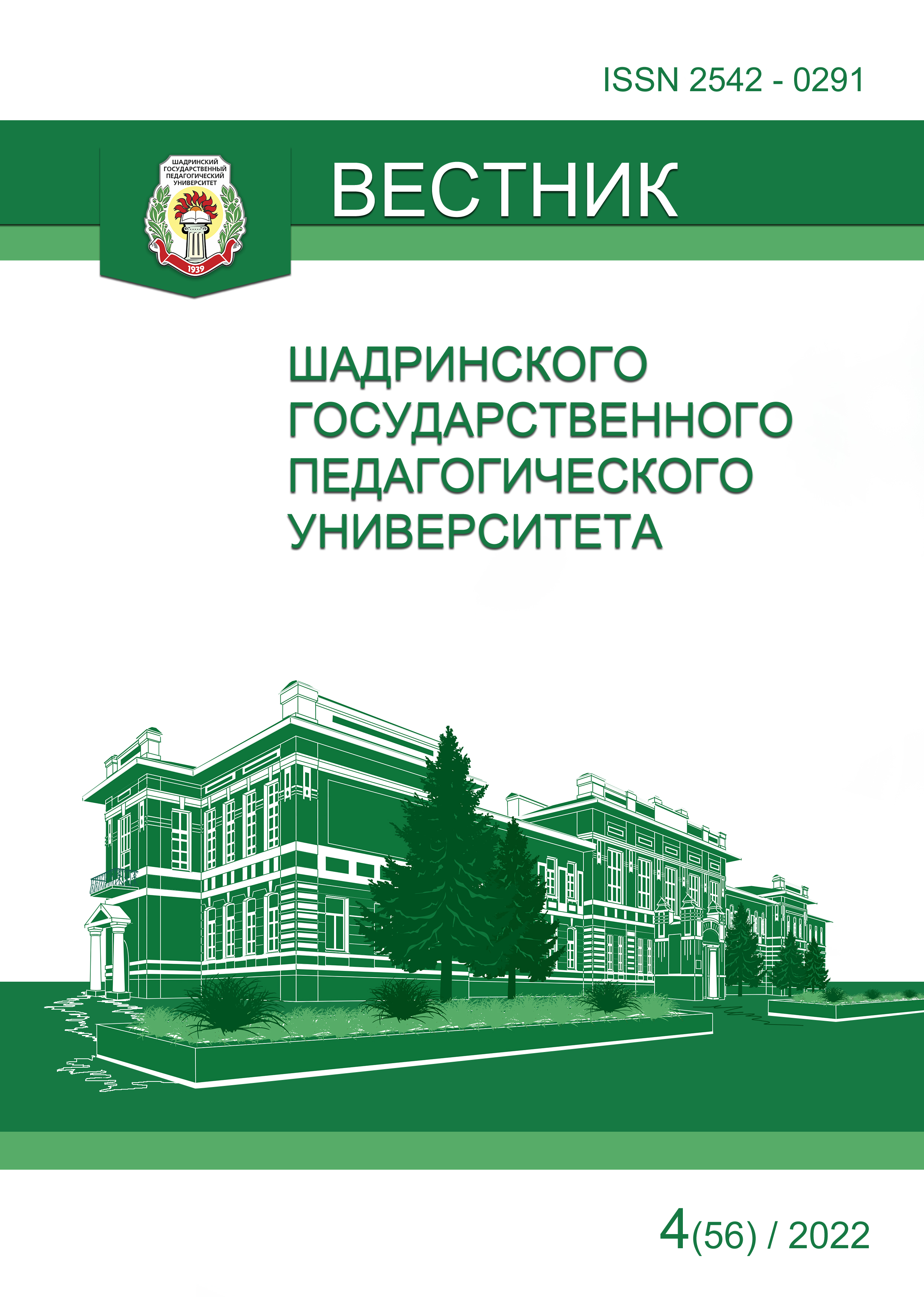Методические аспекты формирования экологической культуры студентов педагогического вуза
Methodical aspects of the ecological culture formation at pedagogical university students
Аннотация
Данная статья посвящена рассмотрению методических аспектов формирования экологической культуры студентов профилей «Биология» и «География», «Биология» и «Химия» в Шадринском государственном педагогическом университете. В работе рассмотрено определение понятия «экологическая культура» и составляющих ее компонентов: когнитивного, мотивационно-ценностного и организационно-практического. Автором представлены основные дидактические принципы формирования экологической культуры студентов и особенности организации образовательного процесса в вузе посредством изучения экологических дисциплин, организации практикумов, полевых исследований и участия студентов в инновационных проектах и мероприятиях. На основе анкетирования по методике Е.В. Асафовой выявлен уровень сформированности экологической деятельности обучающихся 3-5 курсов как одного из компонентов экологической культуры, обобщены результаты и выводы по рассматриваемой проблеме.
Abstract: This article examines the methodical aspects of the ecological culture formation at the students of the profiles “Biology and Geography”, “Biology and Chemistry” at Shadrinsk State Pedagogical University. The paper considers the definition of the concept of “ecological culture” and its components: cognitive, motivational-value and organizational-practical. The author presents the main didactic principles of the ecological culture formation at the students and the peculiarities of the organization of the educational process at the university through the study of environmental disciplines, the organization of workshops, field studies and the participation of students in innovative projects and events. The author used the questionnaire on the method of E.V. Asafova revealed the level of ecological activity formation at 3–5-year students as one of the components of ecological culture. The article presents the results and the conclusions on the problem under consideration.






